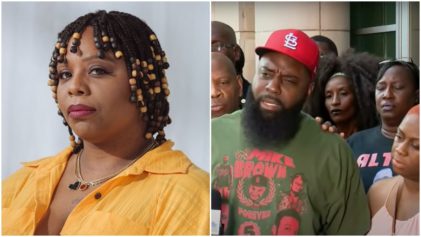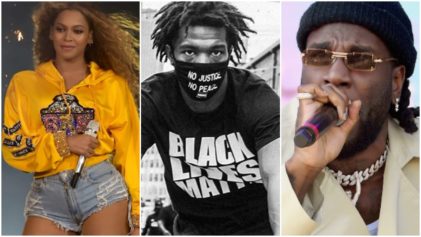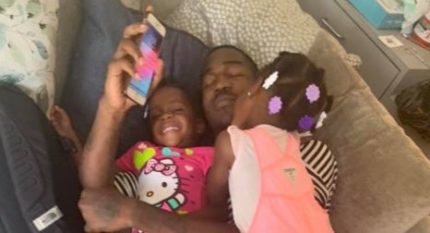As the St. Louis sun labored past high noon on Aug. 9, 2014, 18-year-old Michael Brown was shot dead on Canfield Drive.
Canfield Drive is no back alley: It’s the major artery connecting the Canfield Green neighborhood to the convenience stores, gas stations, beauty salons, fast-food joints, medical facilities, churches, pharmacies and grocery stores that line West Florissant Avenue as you drive north toward Missouri Interstate 270.
The man who pulled the trigger, not just once but a dozen times, was Darren Wilson, a Ferguson police officer. Three independent autopsies confirmed that at least six rounds struck Michael Brown, two of which hit Michael in the head, and not one of which hit him in the back. He was neither fleeing the scene, nor resisting arrest. He was also Black and unarmed. Darren Wilson is white.
In another part of St. Louis that same morning, rapper T-Dubb-O was working in the post-production studio he built in the basement of his new home. He and his DJ were making the final preparations for a show they had that night in Kansas City. Around lunchtime, T-Dubb-O received an email that was five words in length: “Police just killed my homie.”
T-Dubb-O’s success as a musician, as a college student, as a father and as a community organizer and activist is attributable to his razor-sharp focus. At that moment, his focus was on the evening’s show. “In 2014, I went to 13 funerals,” T-Dubb-O explained. “So, at first, I was like, ‘My condolences, try to stay strong, don’t do nothing dumb, try to see how you can be a support system for his family.’” But even for the hyper-focused, the mind is sometimes inexplicably drawn to unknown and larger things. “Something in my spirit told me to look into it,” he said.
After hopping on Twitter, T-Dubb-O learned what happened to Michael Brown, a kid from the same high school as T-Dubb-O’s younger brother. Then, he saw a picture of Michael’s stepfather with a sign reading, “Ferguson police department just killed my unarmed son.”
“All I could think about was a conversation I had with [friend and fellow rapper] Tef Poe about Trayvon,” explained T-Dubb-O. “It all came back to me and all I could feel were hot tears coming down my eyes.” He cancelled the Kansas City show, picked up his younger brother and headed over to Canfield.
T-Dubb-O and his brother arrived three hours after Michael was shot and his dead body was still lying in the middle of Canfield Avenue. T-Dubb-O may well have exploded right then and there were it not for a friend who saw him and came to his aid.
“He just hugged me until I calmed down and we talked all night,” he said.
That was the genesis of Hands Up United, a community organization founded by T-Dubb-O, Tef Poe, Tara Thompson and Rika Tyler. As described by T-Dubb-O, Hands Up United is dedicated to “giv[ing] our kids the same experience as privileged kids.” The group works toward its mission not by espousing inclusion, equality and fairness so much as by instilling the importance of relying upon the Black community to create a support system for sustained success.
The St. Louis public schools, for example, had been unaccredited for 15 years before 2017, creating an irreparable education gap for its students as early as first grade. Rather than working within the system by advocating for more teachers or new curricula, Hands Up United turned inward to the Black community and started Books and Breakfast, a volunteer-run community program that fights Black illiteracy by hosting mentor-lead reading groups and using select materials to teach kids about the political system.
This approach to economic empowerment is equal parts community activism and political activism. It is an overt rejection of a system that has perpetuated de facto segregation and Black exploitation. Can this approach work? Since its inception two years ago, Books and Breakfast has spread from St. Louis to 34 cities domestically and five cities overseas. While working outside of the status quo may seem counterproductive at face value, clearly the idea of shunning the system that oppresses is resonating globally.
Michael Maliner is a mixed-race writer who writes about race, culture, and identity. You can follow him on Twitter @PlasticSpoon, and he can be reached at michaelmaliner.com


